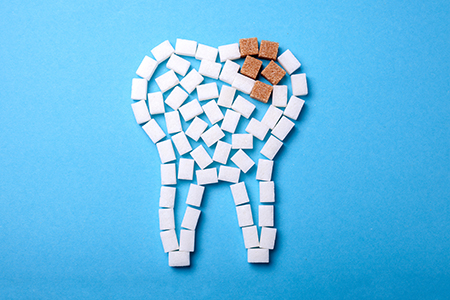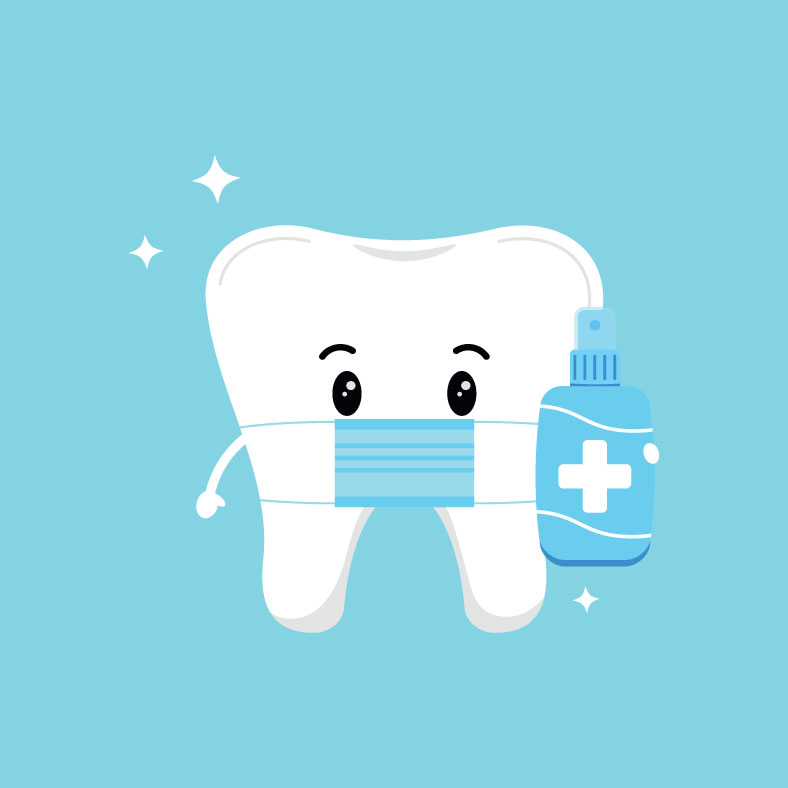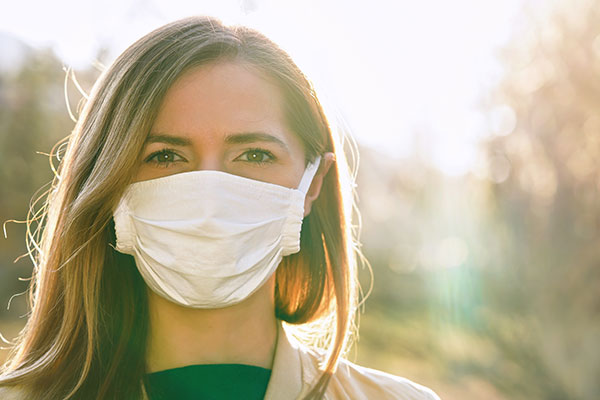Hygiene
SLS Free Toothpaste or Regular Toothpaste
There are so many choices in toothpaste these days that the options might seem bewildering if not overwhelming. Whitening toothpastes, organic toothpaste, toothpaste for sensitive teeth–where does one begin? Lately there’s been an additional discussion among health-conscious people about toothpaste and in particular SLS as a toothpaste ingredient. Some folks are advocating for SLS free toothpaste as a healthier alternative, but is it really? Let’s take a look at toothpaste, SLS, and SLS free toothpastes vs regular toothpastes and see what we can learn.
What is SLS?
As we begin, it’s important to understand what SLS is and the role it fills. SLS is short for sodium lauryl sulfate, which is a compound produced via the sulfation of lauryl alcohol. Chemically it can be used for several things, and in toothpaste it fills the role of a surfactant. Surfactants are common ingredients in soaps, shampoos, detergents, and toothpastes because they work to reduce surface tension and thus help the product work more effectively. In toothpaste, the surfactant SLS does the following:
- Helps with foaming, which makes it easier to tell that you’ve brushed thoroughly
- By reducing surface tension, SLS helps bring active ingredients like fluoride into contact with your teeth longer and more effectively
- SLS helps remove plaque and biofilm from the teeth, leaving them clean and healthy
Myths and Rumors About SLS
So why are there concerns about SLS? Well there’s a great deal of internet rumor floating around about possible negative side effects to SLS. We’re going to take a look at some of the more common rumors and discuss whether or not they’re true.
- Does SLS cause cancer? This is one of the more dramatic and pervasive myths about SLS and it’s just not true. No medical or scientific study has found a link between SLS and cancer of any kind, so there’s no reason to worry.
- Does SLS cause hair loss? Again, as with the idea that SLS causes cancer, this is incorrect as there’s no evidence to support it.
- SLS is a neurotoxin? No, no it’s not. No credible authority lists SLS as a neurotoxin and there’s no evidence to suggest it does damage to your nervous system.
- Is SLS a skin and eye irritant? Well, yes, it can be depending on the quantity and concentrations involved. Most people don’t experience discomfort from SLS with regular toothpaste, but some individuals with sensitive teeth and gums might. They may wish to switch to a sensitive tooth toothpaste or an SLS free brand.
- Is SLS harmful to the environment? The answer is both yes and no. Large quantities of SLS in waterways would be a bad thing for plants and wildlife, but in the amount and concentrations used in consumer products SLS seems to be relatively harmless.
Now that we’ve addressed some of the more pervasive rumors about SLS, let’s sum it up this way. SLS is a harmless ingredient that actually helps toothpaste do its job more effectively. There’s no reason for most people to avoid SLS, although there’s no harm in adopting an SLS free toothpaste should you choose. It’s a matter of personal preference, not science or health.
National Dental Hygiene Month
2020 has been a challenging year in many professions, but since October is National Dental Hygiene Month, we’d like to start by acknowledging the hard work and difficulties faced by many dental hygienists and oral health professionals at this time. Like so many other health care workers, they’ve faced both professional challenges and health risks in providing care to their patients, and we salute all of them, particularly our hard-working staff here at Tim Burgiss DDS.
In their honor, we’d like to take this space to talk about dental hygiene, what it is and what it means, and how you can best practice it in your own life.
What is Dental Hygiene?
Dental hygiene is the practice of keeping the mouth clean and free of problem-causing entities like debris and food particles, bacteria, and excess sugars and acids. While dental hygiene services are provided by dental hygienists and dentists, dental hygiene is also a personal practice that we should all incorporate into our daily lives.
National Dental Hygiene Month celebrates the importance of dental hygiene and the professionals who make it happen, and has been observed since 2009 due to the work of the American Dental Hygienists’ Association.
Practicing Dental Hygiene
Soj how can you best practice dental hygiene at home? Regular exams, cleanings, and fluoride treatments at your dentist’s office are a big part of it, but what you do in your personal life matters just as much and maybe more. A good personal dental hygiene routine includes the following:
- Regular brushing and flossing are probably the biggest single thing you can do for your oral health. Good brushing and flossing habits go a long way towards preventing many problems before they start by removing food particles and other debris, preventing plaque and tartar buildup, and clearing away bacteria and their wastes. This in turn prevents gingivitis and other forms of gum disease and cavities.
- A good mouthwash, used regularly, can help support brushing and flossing as a means of clearing bacteria from the mouth. Ask your dentist to recommend the right mouthwash for you.
- A healthy diet affects all aspects of our health, but especially the teeth. By avoiding sugary and starchy foods and eating a diet rich in fruits and vegetables, we can prevent oral health issues while enhancing our overall wellness.
- Alcohol and tobacco use can have a damaging effect on the teeth and gums, causing or contributing to gum disease, tooth decay, and discoloration. Reducing or eliminating the use of alcohol and tobacco is a big step in personal oral hygiene.
When to Visit Your Dentist’s Office
Your dentist and their oral hygienists can also help you maintain your dental hygiene and oral health. Regular office visits for exams can help detect and treat problems long before they become serious, and regular cleanings can prevent gum disease and tooth decay. The oral health care professionals in your dentist’s office can also get to know you and your situation and help you develop the best oral health plan for your personal needs.
At Tim Burgiss DDS we strive to offer that kind of personal treatment to each and every patient that comes our way. Get in touch today and make an appointment so that we can help you on your journey to the best possible smile.
Why Does Sugar Cause Tooth Pain?
It’s no secret that sugar isn’t good for your teeth. Excess sugar consumption can cause a variety of problems due to the fact that sugar fuels bacteria growth, contributing directly to gum disease, cavities, and other forms of tooth decay. Sugar can also have some other effects on teeth: like heat and cold, sugary foods can contribute to tooth pain for those with sensitive teeth. But why is that? It’s important to understand how it works as it helps illustrate some of the effects sugar has, so let’s take a look.
Causes of Sensitive Teeth
Sensitive teeth are a fairly common problem, unfortunately. Generally speaking, sensitivity is the result of damage to the tooth. While this can be a crack or a chip, it’s most often caused when the hard enamel outer layer of the tooth wears down. As it grows thinner, the more sensitive inner portions of the tooth are more directly exposed to heat, cold, and other outside stimuli. This can lead to pain. The pain may come and go or may be persistent.
So what causes enamel to thin? Generally, a diet combined with poor brushing and flossing habits is to blame. Excess sugar in the diet can cause bacterial growth which in turn leads to tooth decay and the wearing away of enamel. This can cause cavities, but it can also lead to sensitive teeth. Consuming too many acidic foods and drinks–sodas and citrus juices are prime culprits–can have the same effect as the acids work directly to erode enamel.
Enamel erosion can lead to tooth damage or even tooth loss, so it’s important to understand the causes and take preventative measures.
What Triggers Tooth Pain from Sensitive Teeth?
So now that we know a bit about what causes sensitive teeth, let’s look at what triggers pain in teeth prone to sensitivity. A variety of things can trigger pain in sensitive teeth. Heat and cold are common culprits, particularly noticeable when hot or cold beverages are being consumed. Likewise acidic foods–often the causes of worn enamel–can cause a painful sensation when consumed by those with sensitive teeth. And likewise, sugary or sweet food can cause tooth pain if you’re already prone to sensitive teeth. The thinner enamel can’t keep out the external sensations caused by these foods, and the end result is a pain for the nerves of the tooth.
Preventing Sensitive Teeth
So how can we prevent sensitive teeth? Well, the most important thing is to protect and preserve the enamel of the tooth. This is accomplished in a variety of ways, chiefly via a healthy diet and a regular brushing and flossing routine. Combined with visits to the dentist’s office for an exam and cleaning, this takes care of most oral health needs.
Avoiding sugary and acidic foods is a must. While occasionally indulging isn’t going to hurt anything, please keep it to a minimum and afterward rinse your mouth with water to help remove excess sugars and acids. Likewise, during athletic activity, it’s best to wear a mouthguard to protect your teeth and gums. These are available at most athletic supply stores.
Your teeth and gums should provide a lifetime of service, without pain. By maintaining your oral health, you can avoid the issues that lead to sensitive teeth or even worse problems. At Burgiss DDS, we’re here to help keep your teeth healthy for years to come. Make an appointment today and we’ll talk about your oral health needs and how we can best serve you.
Preventive Dental Care Importance During The Pandemic
The challenges posed by the COVID pandemic and the various responses to it are legion. Businesses, families, individuals, and communities all face unprecedented challenges as we move through this experience together. The toll on our health, both mental and physical, is measurable; we’re all struggling to stay sane and healthy at this time.
Within all this stress and strife, we should continue working to maintain our oral health. It’s easy to let things slide when you have so much else on your plate, but your teeth and gums simply can’t be ignored in the same way some other things can. Fortunately, we have some tips for you about maintaining your dental care during the pandemic both at home and in conjunction with your dentist. Let’s take a look!
First and foremost, it’s important to maintain healthy routines at this time. Whether you’re back to a regular work schedule, working from home, or still in quarantine, keeping up a daily routine composed of healthy habits is a big step toward keeping yourself safe, sane, and in good health. This includes good oral health habits, especially a brushing, flossing, and mouthwash use regime. It’s easy to let these slip when you’re schedule is out of whack and you may not be feeling the best, but they’re so important in terms of preventative care in supporting the health of your teeth and gums. Make time to brush and floss after eating every day and your smile will thank you in the long run.
On a related note, maintaining good dietary habits is important to all aspects of your health, but especially your teeth. If you’re stuck at home for whatever reason, it’s so easy to give in to junk food, excess snacking, and stress eating. It’s important to avoid these, as they can have a negative impact on your entire body including your oral health. Substituting a cup of herbal tea for a sugary snack or finding other ways to alleviate boredom keeps you and your teeth healthy and happy while supporting good habits which will last a lifetime!
Along with snacking and stress eating, many folks are dealing with these difficult times by indulging in tobacco, alcohol, or coffee a bit more often than usual. While this may provide a short term solution to stress or boredom, any of these habits can do bad things to your teeth and gums in the long term. Possible effects include gum disease, tooth decay, or tooth loss. It’s best to avoid alcohol, tobacco, or coffee entirely or at the least limit your intake to special occasions.
Finally, while the pandemic has raised many concerns about public spaces and public gatherings as ways in which people catch COVID19, you need to know that we are doing everything we can to keep you safe. We are scrupulous about keeping things clean and avoiding infection or disease transmission under normal circumstances, and we’ve added additional safeguards during the pandemic. There’s no need to worry about a visit to the dentist office–just follow the instructions and things will be fine. If you need a routine exam and cleaning or have another procedure in mind, don’t hesitate to book an appointment today. Your dentist and their staff are here for you, even during the pandemic.
Things may be difficult right now, but they will get better. Until then, keep yourself and your teeth clean and healthy and reach out to us if you have any concerns or if you’d like to make an appointment. Whatever happens, we’ll get through it together.
How Does Gum Disease Develop?
February is National Gum Disease Awareness Month, so we’re taking a moment here to help raise awareness about an important oral health condition.
For such a seemingly small thing, gum disease is a much bigger issue than many of us realize. Nearly 2/3rds of American adults will deal with gum disease at some point in their lives. While most of the time gum disease is fairly benign, if left untreated it can result in permanent damage to the teeth including tooth loss. In addition, gum disease can exacerbate some other health problems, leading to additional complications and negative outcomes.
So how does gum disease develop, and what can we do to prevent gum disease? Let’s learn a bit more about how gum disease works and what you can do about it.
What Is Gum Disease?
Gum disease is an infection of the gum tissue or gingiva, which results from excess bacteria buildup. This generally results due to poor oral hygiene habits and poor diet, although other factors like tobacco and alcohol use can play a role. Generally speaking, the symptoms of gum disease include:
- Swollen or puffy gums, gums that are discolored dark red or purple
- Gums that feel tender when touched
- Gums that bleed easily. This may manifest as a pink-tinged toothbrush or spitting out blood after brushing or flossing.
- Bad breath
- Pus between your teeth and gums
- Loose teeth or even tooth loss
- Pain while chewing or speaking
- New spaces developing between your teeth
- Gums that pull away from your teeth
- A change in the way your teeth fit together when you bite
If left untreated, gum disease can cause serious problems, including permanent damage to the teeth, gums, and jaw. If you are experiencing any of these symptoms, it may be time to make an appointment with your dentist to pursue treatment options. They can help you understand what’s happening and suggest the right remedy.
The Development of Gum Disease
So how does gum disease develop? Naturally occurring bacteria in the mouth, if left unchecked by regular cleaning, can build up on the teeth and manifest as a sticky biolayer called plaque. As this plaque layer builds up on the teeth and under the gums, it causes further infection and irritation, which can cause the swelling, bleeding, and tenderness mentioned above. As plaque accumulates, it may become dental tartar, a thick white substance made of bacteria and their waste. This is where the serious problems begin, as gum disease–also known as gingivitis–can develop into the much more serious condition of periodontitis. Periodontitis occurs when pockets form under the gum, which is filled with bacteria, plaque, and tartar. These are potent spots for infection, which can lead to tooth loss, bone loss in the jaw, and gum loss. The damage can be permanent if left unchecked. In addition, the bacteria which cause these infections may spread to the rest of the body, which can complicate conditions such as respiratory ailments, diabetes, and some digestive disorders.
The best way to treat gum disease is prevention. A good brushing and flossing routine combined with a healthy diet is the first step. Regular visits to your dentist for exams and cleaning are another important piece of the puzzle. If you’re due for an appointment or just concerned about your oral health, make an appointment today.
“Mask Mouth”: Stress Related Oral Health Issues and COVID-19
It’s no secret that the last year of our lives has brought us face to face with some serious health challenges. The COVID pandemic forced vast and lasting changes onto many of our lives, and the issue isn’t resolved yet. As we all work to find ways to social distance, mask, and keep each other safe, every aspect of health care has had to adapt to our new normal. Dentist offices around the world are working to find ways to provide high-quality care in the safest possible way. As we continue our journey through the pandemic, dental providers are also noticing some other issues related to COVID. In particular “mask mouth” and other stress-related oral health issues are on the rise. By knowing what they are and what causes them, we can all do our part in the prevention and help maintain our oral health.
“Mask Mouth”, as it has come to be called, is an interesting new oral health challenge arising from the widespread use of masking as a means of disease control during the pandemic. Essentially, mask wearers subconsciously become accustomed to breathing through their mouths while masked. This small change of habit can lead to dry mouth, a condition where there’s just not enough saliva. A dry mouth can contribute to gum disease and even lead to tooth damage or tooth loss if left unabated. The solution is simple, however: stay in the habit of breathing through your nose even while wearing a mask. It’s fairly easy to do and builds a good habit and good oral health. Likewise, drinking more water helps your body stay hydrated and contributes to good saliva flow, which in turn keeps your teeth healthy.
Another COVID-related oral health issue is the sharp rise in stress-related complications. In brief, dentists everywhere are seeing a rise in the number of patients reporting everything from sore jaws to teeth grinding and even damaged/chipped teeth from grinding or jaw clenching. These can be serious problems; tooth loss may result from any of these causes if they’re left untreated. If you notice any of the symptoms of teeth grinding or jaw clenching: sore jaw, headaches, the tension in the face or neck, or worn/damaged teeth, you should tell your dentist right away. A number of solutions exist, ranging from an over-the-counter mouth guard to protect the teeth at night to medications for stress and muscle tension to therapy to get at the root cause of the issue. The important thing is to address the problem quickly: ignoring it and hoping it will go away on its own only makes things worse.
The COVID pandemic is an ongoing challenge for all of us, and in these busy and difficult times, it can be easy to forget about oral hygiene and tooth care. The fact is that these things are more important than ever. So take care of your teeth, address the problems before they arise, and keep making regular appointments with your dentist for exams and cleanings. When things get back to normal, you’ll be glad that you did.






